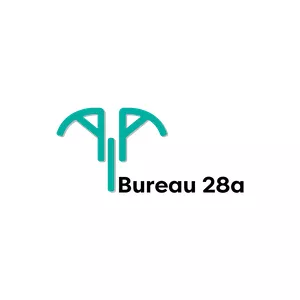International double taxation refers to the phenomenon of taxing the same income in more than one state. Double taxation adversely affects interstate trade and free movement of capital, technology, and labor. Agreements on the elimination of double taxation are of special importance to developing international economic relations, including stimulation of foreign economic activity and attraction of foreign investments.
On 23 April 2024, Law No. 1139-VIQ approved the Treaty between Government of Repulic of Azerbaijan and Government of Republic of Turkiye for Avoidance of Double Taxation and Prevention of Fiscal Evasion with Respect to Taxes on Income. The Treaty was signed on 19 February 2024 slightly over 30 years after the first such treaty was made on 9 February 1994. Presently, Azerbaijan continues to have 57 agreements for the avoidance of double taxation with 55 in effect.
With the decline of oil revenues in Azerbaijan, the tax systems of Azerbaijan and Turkiye are gaining common ground.
The percentage of tax revenues in the Azerbaijani GDP is reported as of 2023 at 17.9 percent averaging 14.1 percent from 1993 to 2023.1 Taxes in Azerbaijan include the personal and corporate income, the value added (VAT), excise, property, highway, land, and mining taxes. Some of these can be paid at the Republic's and local (Naxcivan and municipality) levels.
The tax-to-GDP ratio in Turkiye is expected for 2023 at slightly higher than 20 percent.2 As such, the tax regime in Turkiye is an important component of the country's economy hosting the income (personal and corporate), consumption (the VAT and SCT, special consumption tax, i.e., excise), and other (e.g., property, stamp duty) taxes.
Presently, the new treaty awaits approval in Turkiye.
PenaltIES for Failure to Pay in, AND REPORT ON, Charter Capital
The Republic seeks to improve fiscal compliance of its entities through the introduction to the Code of Administrative Violations of penalties for a failure to comply. The proposed bill, a legislative initiative, provides for the addition to the Code of new Articles 405-1 and 451-1.
According to the proposed amendments adopted in the first and second readings at the Milli Maclis sessions on 7 and 21 May, respectively, officers managing a limited liability company and the LLC, itself, are subjected to administrative fines for a failure of participants of the LLC to pay in the charter (authorized) capital of the LLC within the established time period. Such a period cannot be longer than three months.
The fine for officers will amount to One Thousand Manats, while for LLCs, a fine of Two Thousand Manats is envisaged.
Additionally, in the case of a failure to submit information of the fully paid in charter capital of an LLC to the body specified by the relevant executive authority within the term stipulated by the Law, On State Registration and State Register of Legal Entities, officers and entities will be subject to the fines of Five Hundred and One Thousand Manats, respectively. Such term is 40 business days.
The amendments are expected to pass one last third reading at the parliament before being promulgated to take effect.
Footnotes
1 https://www.ceicdata.com/en/indicator/azerbaijan/tax-revenue--of-gdp
2 https://www.oecd.org/tax/revenue-statistics-turkiye.pdf
The content of this article is intended to provide a general guide to the subject matter. Specialist advice should be sought about your specific circumstances.


